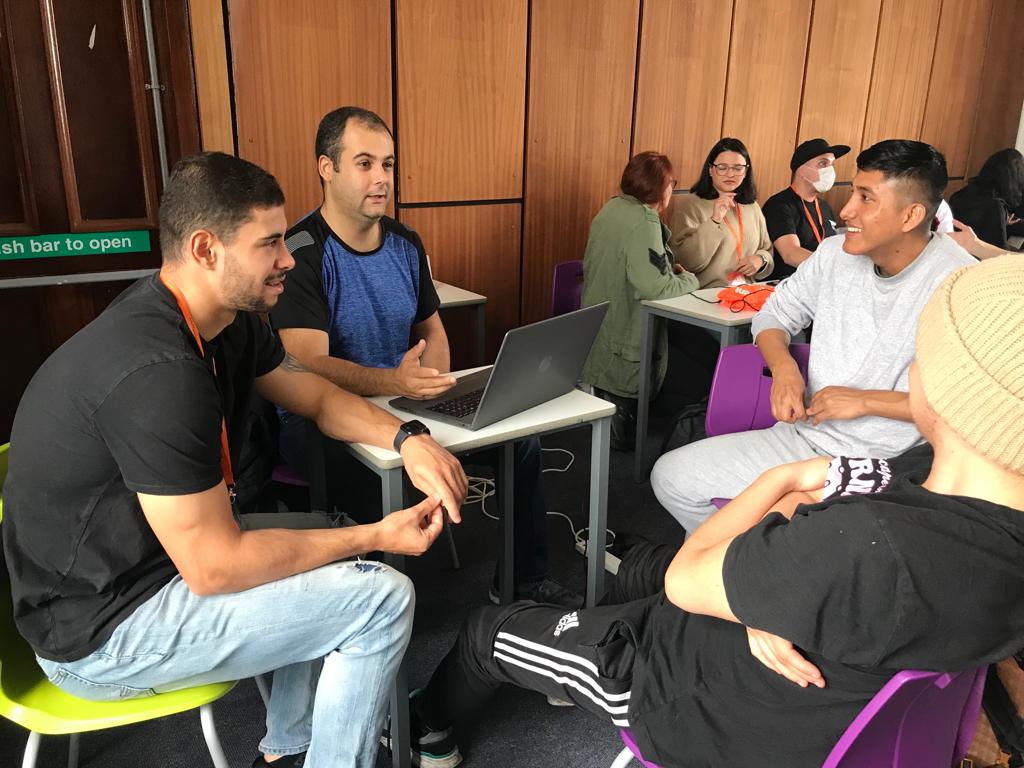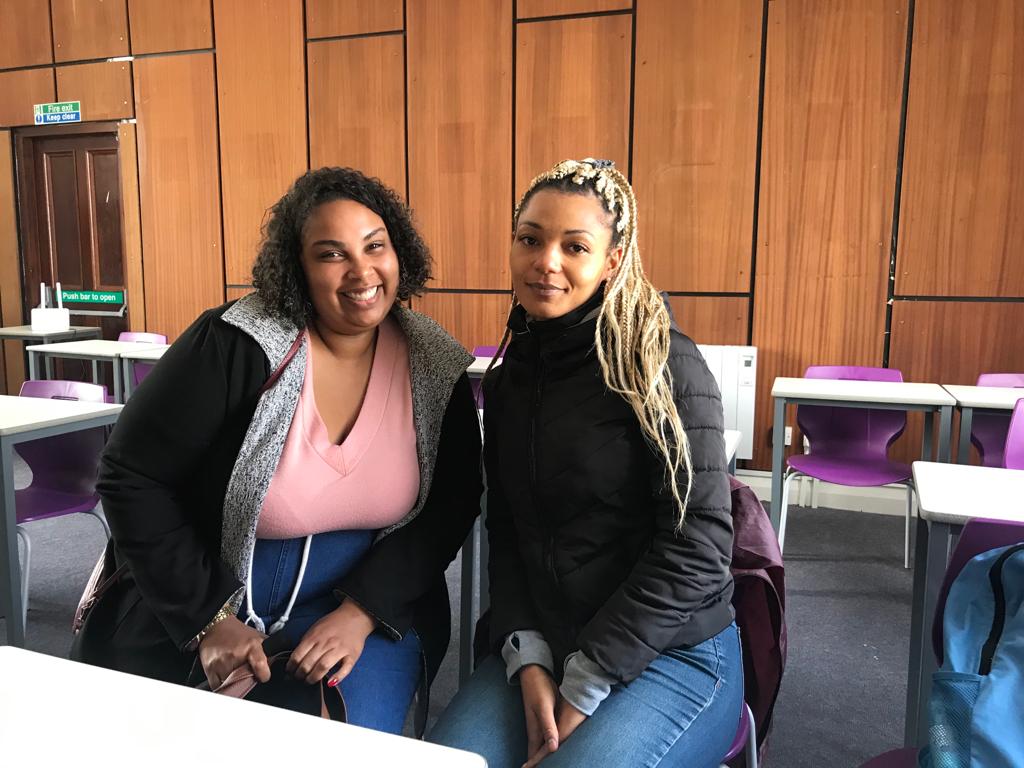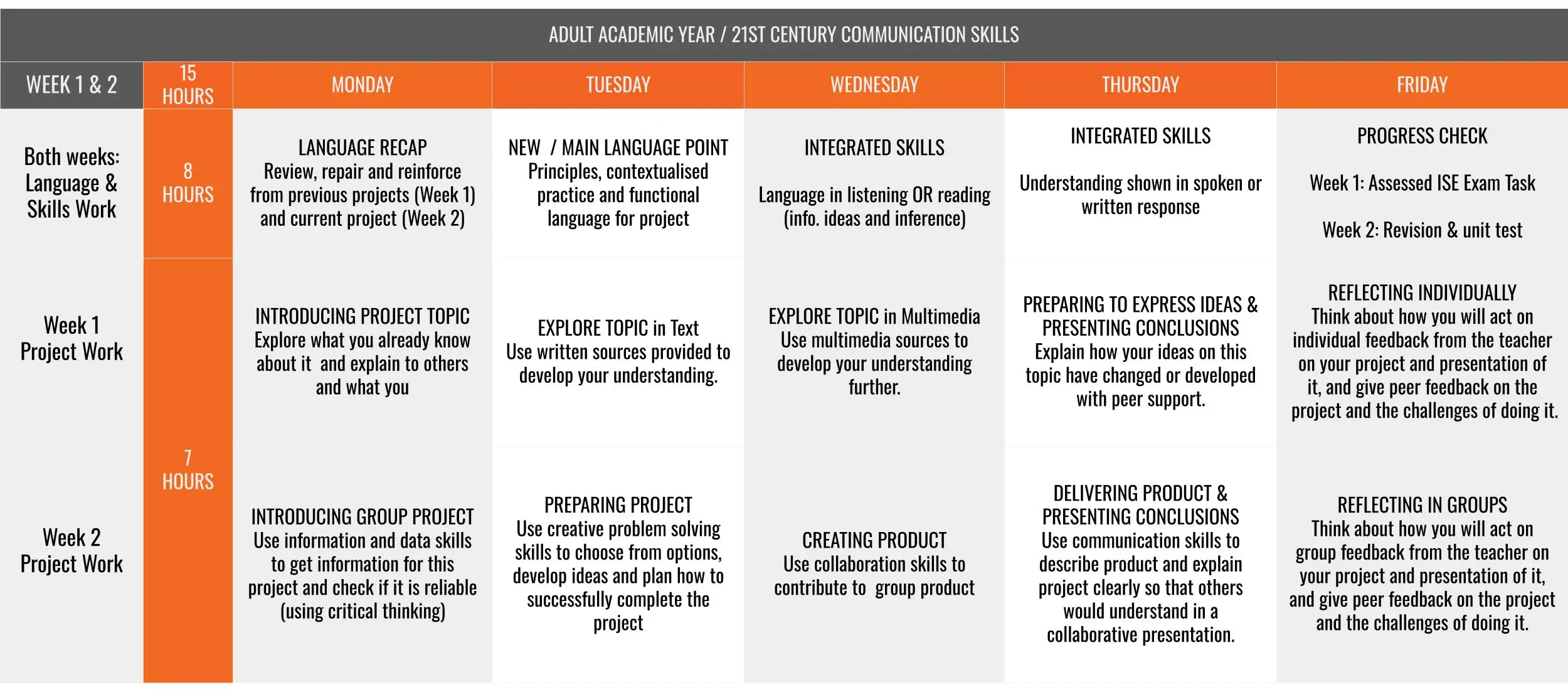Adult English Language
Our courses are designed to help you develop personal, social, professional and academic acumen. We always emphasise the importance of autonomy and our course encourages students to take responsibility for their own progress and be active in working to develop their English. Our dynamic project based learning environment involves collaborative learning, creative problem solving and critical thinking as well as working on effective communication.
The Adult English Language Course is divided into three stages according to the English language level concluding in the relevant level of the Integrated Skills Exam (ISE) set by Trinity College London. The ISE consists of two independent exam modules: Reading & Writing and Speaking & Listening.
These courses equip students with the 21st century skills and language knowledge needed to succeed through English, personally and socially (A2 - B1), professionally (B1 - B2) and academically (B2 - C1).

Course Details
Beginner
Levels A0 to A1
Course Description
This stage aims to enable learners with only a few words and phrases, to successfully start using English for their most immediate needs.
- Understand familiar expressions and very basic phrases.
- Introduce themselves and others and ask and answer questions about personal details such as places they live, people they know and things they have.
- Use everyday expressions and very basic phrases to satisfy concrete needs.
- Interact in a simple way when the other person talks slowly and clearly and helps them understand.

Foundation
Levels A1 to A2
Course Description
Designed to help learners to activate their passive English language knowledge so that they are able to successfully communicate their immediate needs and equips them to;
- understand sentences and frequently used expressions related to areas of most immediate relevance (e.g. very basic personal and family information, shopping, local geography, employment)
- communicate in simple and routine tasks requiring a simple and direct exchange of information on familiar and routine matters
- describe in simple terms aspects of his/her background, immediate environment and matters in areas of immediate need.

Stage 1
Levels A2 to B1
Course Description
Designed for people looking to pursue a life in an English speaking country and equips them to;
- Engage effectively in routine social and intercultural interactions
- Make progress in conversational and transactional skills at work and at home.
- Gain confidence in dealing with personal and social situations
- Successfully negotiate the cultural challenges of living in an English-speaking city

Stage 2
Levels B1 to B2
Course Description
Designed for professionals who are interested in developing their spoken and written communication skills in an international working environment. It equips them to;
- Engage fully and successfully in professional communication skills
- Make progress professionally through developing effective project skills
- Gain confidence in communicating in English to an audience or meeting
- Successfully negotiate the corporate culture in an English-speaking company

Stage 3
Levels B2 to C1
Course Description
Designed to help students access opportunities in international companies who employ multinational teams to service global markets where the language of coordination and management is English. It equips them to;
- understand a wide range of demanding, longer academic texts, and recognise implicit meaning.
- express him/herself fluently and spontaneously without much obvious searching for expressions.
- produce clear, well-structured, detailed text on complex academic subjects, showing controlled use of organisational patterns, connectors and cohesive devices.
- use language flexibly and effectively for social, academic and professional purposes.

Stage 4
Levels C1 to C2
Course Description
Designed to equip people to make a success of studying in an English speaking country. The aim is to equip participants to communicate effectively in English in order to be able to progress academically at a higher level. It equips them to;
- understand with ease virtually everything heard or read
- summarise information from different spoken and written sources, reconstructing arguments and accounts in a coherent presentation
- express themselves spontaneously, very fluently and precisely, differentiating finer shades of meaning even in more complex situations

Sample Schedule
























